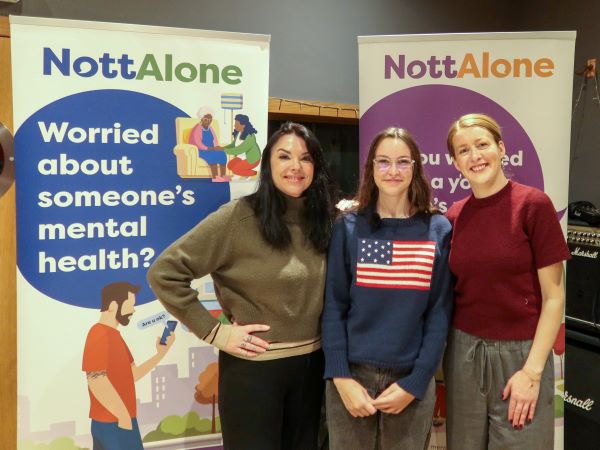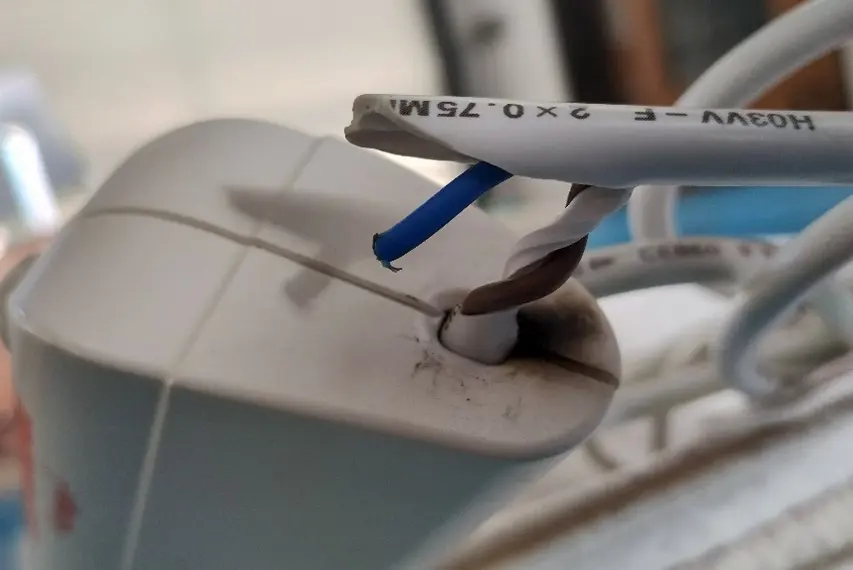Annual report for the Nottinghamshire Partnership Assurance and Improvement Group (PAIG) 2025
On this page:
- Executive summary
- Achievements during 2024
- Engagement and co-production
- Finance
- Challenges and risks
Executive summary
The local area’s vision for Nottinghamshire is to champion and improve the experiences and outcomes for children and young people with special educational needs and disabilities (SEND), ensuring they are listened to, heard, and supported to be the healthiest they can be, safe, accepted, valued, and prepared for their futures.
The Nottinghamshire Partnership Assurance and Improvement Group (PAIG) was established in December 2023, and this annual report covers its first year of work. The PAIG's purpose is to ensure that the voices, lived experiences, and outcomes of children and young people with SEND, along with their families, drive meaningful improvements in SEND services across Nottinghamshire. Its membership is drawn from across the County including the County Council, Nottingham and Nottinghamshire Integrated Care Board (ICB), education and health providers and parents/carers.
PAIG members identified values such as positive learning, shared accountability, collaboration, and celebrating successes. Some successes during 2024 include stronger partnership working, timely assessment and identification of needs, reduced waiting times for specialist assessments, and improved data collection. However, there are still inconsistencies in experiences and outcomes for children and young people with SEND.
The work of the PAIG and the wider SEND partnership was outlined in the SEND Delivery Plan.
Achievements during 2024:
- The new Nottingham and Nottinghamshire SEND joint commissioning strategy (2024-2027)
- The creation of addition special school places. Currently the number stands at 1,356, up from 1,070 in 2022.
- The Nottinghamshire Parent Carer Forum established as a key strategic partner in the local area SEND governance arrangements, including three representatives on the PAIG.
- A focus on education, health and care plans (EHCPs) as a tool for improving SEND provision, with further work to embed learning from multi-agency audits into practice across the partnership.
- Continuing to provide educational support services and top-up funding to meet the needs of children with SEND through our network of families of schools and devolved behaviour partnerships, with increased funding this financial year.
- Extensive reviews of the neurodevelopmental support team (NST) and speech, language, communication needs services (SLCN). Waiting times have reduced with further improvements planned.
- A new multi-agency working group will work towards collaborative solutions relating to complex healthcare provision in schools.
- Better shared data reporting systems have been put in place so that the partnership can track and monitor outcomes for all children with SEND, with and without an EHCP, with a focus on school attendance, exclusions and suspensions and academic attainment.
- More families are receiving EHCPs within statutory timescales and delays have been significantly reduced. Currently, 36% of our children and young people received their EHCP within 140 days, compared to the year-end position of 4.5% in 2022. Notably, this improvement has happened within the context of a 23% increase in EHC Needs Assessment requests and a 64% increase in EHCPs issued.
- Revised the Nottinghamshire preparing for adulthood guide – protocol and pathway, following extensive mapping and co-production with a range of stakeholders.
Engagement and co-production
At the heart of the local area’s vision is our commitment to co-production, collaboration and communication. By taking a co-produced, outcomes-based approach, we want to ensure that children, young people and their families and carers are at the centre of everything we do. This is visualised in Our Nottinghamshire Approach and the Nottingham and Nottinghamshire integrated care system co-production strategy 2022-2024, which outline how we commit to working with children, young people and their families.
- Leading the rollout of the Partnership for Inclusion of Neurodiversity in Schools (PINS) project across 39 Nottinghamshire schools.
- Carrying out a review of young people on part time timetables and developing recommendations.
- Parents, carers and young people have been directly involved in shaping our new SEND journey map, the refreshed multi-agency graduated response information.
Financial overview
Both locally and nationally, funding for SEND services and provision has not kept pace with the increases in demand. Nottinghamshire has experienced a more than 20% increase in demand for services and provision during 2023 and 2024, which has mitigated against the additional resources provided or the improvements in service delivery.
Nottinghamshire County Council has been allocated £130.7m to fund its high needs educational services for 2025-2026. As well as increases in the High Needs Block, the council has invested over £3m to improve SEND services. Since 2021-2022 the costs of the Education Psychology Service and Integrated Children’s Disability Services, for example, have increased by nearly 85%. We are part way through a capital programme of £46.5m to increase the number of special school placements by nearly 500 by 2026.
During 2024-2025) the Nottingham and Nottinghamshire Integrated Care Board (ICB) spent £209,000 on implementation of the Partnership for Inclusion of Neurodiversity in Schools (PINS) and is hoping to be able to spend a similar amount in 2025/26 to continue to deliver the project, expanding to include 30 new schools.
The ICB has also invested over £1m during 2024 - 2025 to improve the neurodevelopmental pathway including pre-diagnostic support, diagnostic services and advice and guidance for young people and families.
The ICB has also injected £244,400 over 2024 - 2025 to support capacity within specialist Speech Language and Communication Needs pathways to enable new models of delivery to be trialled and service transformation to reduce waiting times and improve communication with families.
Challenges and risks
The local area partnership has identified the following challenges and risks to maintaining progress over the next year or so:
- Sustaining collaboration: continue to invest and build on the partnership governance and relationships with a particular focus on school settings.
- Transformation and change: continue our journey to create effective multi-agency working, with conditions for effective practice and an equipped and effective workforce through strong leadership across the partnership.
- Engaging harder-to-reach families: review our engagement strategy for parents, carers, and children and young people with SEND and build trust in communities and across the system.
- Resource constraints: build on efficiencies, continued and new funding sources, and innovative solutions and delivery models.
- Increased need: continued focus on early intervention and the graduated response.
- The pace of change: driving continuous improvement at pace whilst working in collaboration across the system.
- Achieving the balance between quantity and quality: develop, implement and embed a quality assurance framework and learning culture.
- Embed our outcomes-based strategy: build stronger relational practice and embed our shared values and the ambitions with a robust SEND delivery plan, system risk register and escalation process.
- Embed the SEND data dashboard: ensure data is accurate and is informing decision making throughout the governance structure to frontline practitioners.








